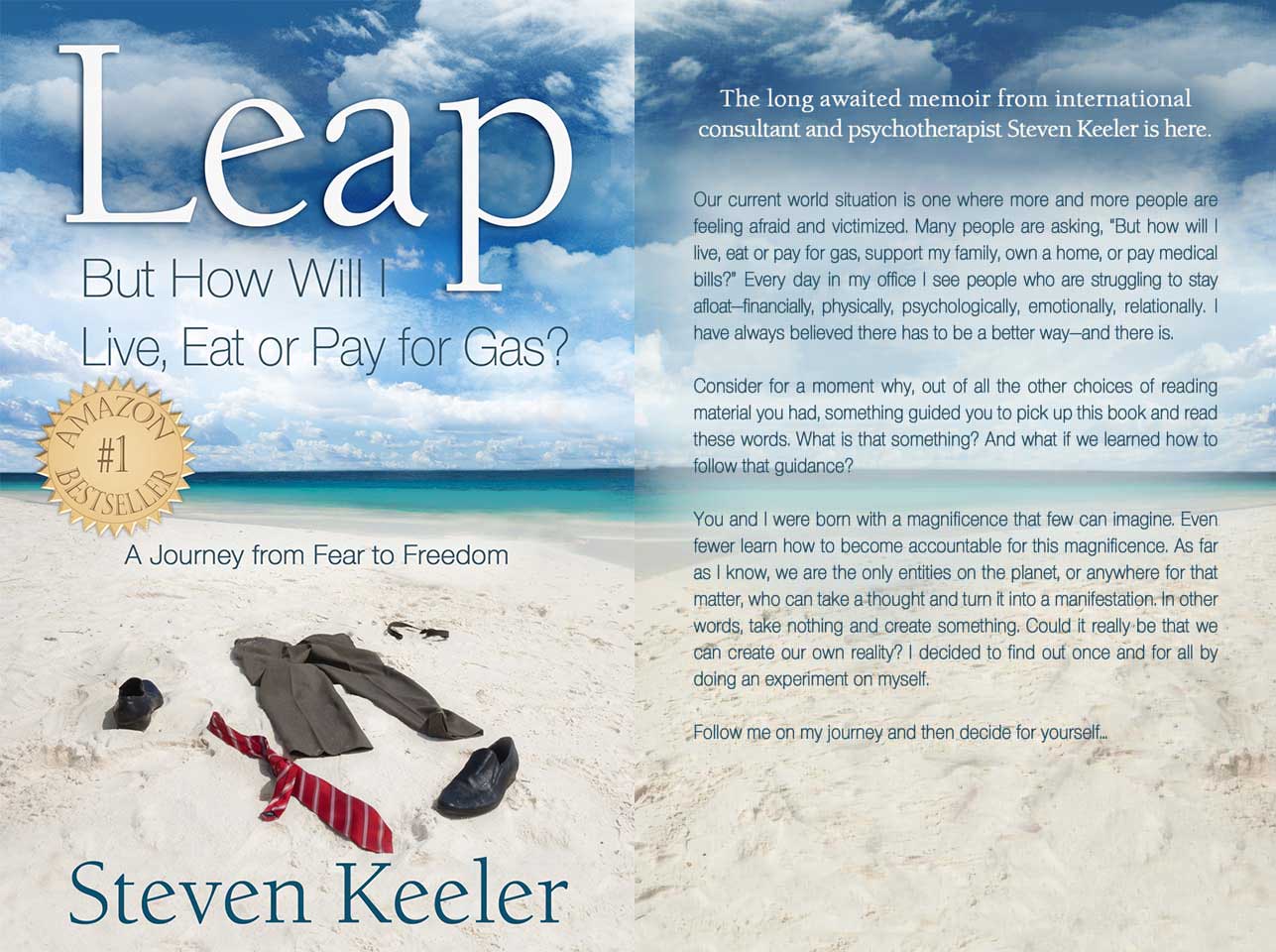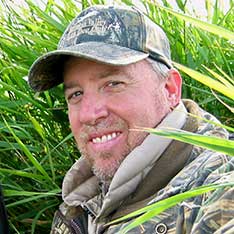LEAP. But How Will I Live, Eat or Pay for Gas?A Journey from Fear to Freedom
“We tell ourselves often that there isn’t much in the world that’s worth feeling grateful for. One of our blocks is entitlement. It is a belief that all rewards are earned, paid for and deserved. If we interpret the positive aspects of our lives as what we deserve, there’s no reason to be thankful. Entitlement is thinly disguised selfishness. But once we start the practice of gratitude, our perspective opens up, we start to see how the universe generously supports us in countless ways. As this realization sinks in the sense of entitlement dissolves. You see a life for the cosmic gift it actually is-a gift of grace that renews itself with every breath. From this shift in perception optimism naturally emerges because the ups and downs of daily existence pale beside the infinite generosity of nature as a candle pales in the noon day sun… Deepak Chopra“
LEAP. But How Will I Live, Eat or Pay for Gas? A Journey from Fear to Freedom

INTRODUCTION
So, I noticed you picked up my book! I’m curious, being a psychotherapist and all, why you’ve picked it up.
Think about it.
Was it the cover?
The subject matter?
Or was there a part of you that resonated with it?
Out of the 1000’s of books you could have picked up, you chose this one.
This part is a very important thing to pay attention to. This is the part of us that lets us know when something fits, and when it doesn’t; it’s an internal knowingness. Did you even realize you had this part? And what if you let this part guide you in every area of your life?
And what do we call this part? Some people call this part soul, God, life force, all-that-is, intuition. I choose to call this part Spirit.
What’s important is not so much what name we give it, but that we learn to listen to and follow it. This “part” seems to be how we are connected to the universe and the resources of all-that-is. Being connected to the universe is important because it is the source of creation. Think about it-when we invent something, we must first believe it possible, then all the events, many that are impossible for us to imagine, conspire to create the manifestation. It is apparent to me that the “all the events coming together” part is beyond our control. But the “believing that it is possible” part is in our control; and the willingness, rather the courage, the character to follow the unfolding of events path is also in our control.
You and I have been born with a magnificence that few can imagine. Even fewer learn how to become accountable for this magnificence. As far as I know, we are the only entities on the planet or anywhere for that matter that can literally take a thought and turn it into a manifestation. In other words, take nothing and create something.
I wanted to put this part to the test. I wanted to know what happens if I believe I cannot fail; what happens if I believe a life of abundance can be easy; what happens if I let go of trying to control everything? I wanted to know what happens if I used the same principles we use for inventing, to invent a life of peace, contentment and abundance.
What governs the success or failure of this endeavor is our beliefs. Beliefs are thoughts practiced over and over again. You and I have been formatting our beliefs since the sperm and the egg came together. Again, we are in control of this, if we choose to be.
I wondered what would happen if I put my life on the line and instead of struggling and suffering so much, I only followed what the best part of me, the connection we all have to all-that-is, knows.
In my studies and experience, the best part of us never fails us, never abandons us and seems to have a never ending source of life force energy.
If you don’t believe in the idea of spirit, then just look at how you were created: in the act of combining the sperm and the egg, two powerful forces (hundreds of generations) came together to create you.
Think about it-two cells came together and had the energy in them to create you! Where did all that energy go?
Nowhere! It’s still inside us, inside every one of our 73 trillion cells.
So if you don’t believe in spirit, at least believe in your own amazing potential. I believe these concepts are synonymous.
So what would you do if you believed you could not fail? How would you live your life? What kinds of decisions would you make?
I decided to find out what would happen if I built trust in this connection to all-that-is, rather than working harder and harder to keep building trust in my ability to figure everything out.
Over time I have noticed that people tended to doubt their own magnificence and that most of our suffering comes because our most knowing part knows what to do, but we have been trained not to listen to it or in some cases, even to go against it. Kind of like putting your hand on the proverbial stove burner over and over even though the best part of you is saying, “NO! Don’t do that!”
We pay a price for doing this: we suffer.
Why are we taught that we must suffer?
In my more than 20 years as a practicing psychotherapist, I have worked with many 100’s of clients who have shown me that it was only their own beliefs that stood between themselves and what they dreamed of. And most of them knew this.
When I was a boy I was taught that if you don’t work, you don’t eat, that you must eat things you don’t like and that there’s never enough-money, time, food, success.
If I close my eyes and ask, “Am I ever supposed to suffer?” The answer is always, “No.” When I close my eyes and ask, “Can my life be easy? The answer is always, “Yes.” These answers have always been with me.
Watching the news at night, I see much proof that the world is a harsh, dangerous place, with limited resources which breeds competition and the fear that there isn’t enough.
Does the news make me feel good? No? Why not? Most of us might explain that bad feeling in a way that supports what the news proves everyday-that the world is a bad place.
In other words, we use the external world to explain our internal feelings. This is a dangerous thing to do and literally continues our suffering.
And I had no idea of how to change this way of living, without suffering even more (as in working harder). And as I listened to my clients, I realized they too were relating the same frustrations.
But what was keeping us from having what we wanted?
In a word, fear.
And what drives these fearful feelings? Our beliefs and expectations about ourselves, others and the world, and how it works.
Need proof?
How many of us do things we hate in an effort to bring into our lives what it is we want?
How many of us say things like, “Well if I had the money, time, education, I would do what I want with my life. But I’m afraid to take the chance, to step out of the box. So I’ll just keep on doing what I hate, keep my mind off of it, and maybe someday I’ll get lucky.”
How many of us believe that suffering is a part of life?
How many of us believe there isn’t enough for everyone to be fulfilled and happy?
How many of us know what we should do to be happy, but don’t do it, and then blame someone else (like our wife, husband, government, boss) for why we aren’t getting what we want?
Do you see the problem here? If I believe nothing good comes easy, then that is what I experience in my life. If I think only a few “lucky” ones get to be rich or peaceful or happy, then that’s what I experience.
Here’s the bottom line: What you believe is what you create.
I read somewhere that Ted Turner said “the only way you can be rich is by cutting it out of your skin.” Ouch! That sounds awful, doesn’t it?
And where do these beliefs, values and expectations come from? Well, we all know-from our upbringing, school, churches, our choices, our society and maybe even our genetics.
Yes, yes, I know my parents came from a different era, and I know they did the best they could. I also know that many people thrived during the depression. Some made millions when the stock market crashed. So why didn’t our parents focus on that, instead of the fears? Did the baby get thrown out with the bath water? Using the exception to prove the rule creates an invalid argument according to statistical principles-in other words it’s not a good idea.
Instead of being taught that our natural state is to flourish, we were taught to protect and guard what we have, as if there isn’t enough.
This translates to: live in fear.
Living in fear makes you sick.
I’ve always had this nagging, irritating conflict inside me: one part of me knows there really is nothing to fear and the other part was taught to fear everything.
I’ve also known there has to be a better way…
Most of the books and information about creating are from a retrospective point of view, in other words the author is looking back over what happened in their life and telling you what you should do. I’ve decided to show first myself, and if it works, you. I aim to show how powerful our beliefs are and how to transform them if some are not serving you well.
Being somewhat familiar with the scientific method, I have designed an experiment using myself as the guinea pig. The proof I am seeking is intentional-proof needs to be real, measurable and observable. In other words it cannot be just feeling better or happier, this would be too subjective. No, it has to be tangible, like a house.
If you are interested in deriving some deeper meaning for yourself while reading this book, please see the appendices for a few exercises that can help to deepen your understanding about you and where you are on your journey. There will also be an accompanying workbook available.
Thank you for joining me on this journey.
This is the story of how I allowed my life to be led by the unlimited or Spirit part.
I changed my life, and so can you.
